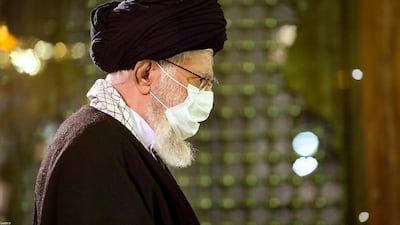UN investigators have bashed Iran's execution last weekend of alleged terrorist Javid Dehghan, warning of an unfair trial and a recent spate of executions of members of his minority ethnic Baluch group.
In a statement on Thursday, UN rapporteurs Javaid Rehman and Agnes Callamard complained that Dehghan, 31, was hanged despite appeals for a retrial over his conviction on terrorism and abduction charges.
“We informed the Iranian government of grave concerns that Mr Dehghan’s death sentence followed serious violations of his fair trial rights,” wrote the experts.
“He was tortured, held in prolonged solitary confinement, subjected to enforced disappearance and forced to confess – concerns that do not appear to have been investigated by the Iranian authorities.”
Dehghan was executed on Saturday in the restive south-eastern province of Sistan-Baluchestan, one day after the UN’s human rights office urged Tehran not to carry out the punishment.
He was arrested in June 2015 and accused of involvement in an ambush by the extremist group Jaish Ul Adl, which means Army of Justice, that caused the deaths of two officers from Iran's Islamic Revolutionary Guard Corps (IRGC).
He was “forcibly disappeared” and held in solitary for three months before being moved to Sistan-Baluchestan’s Zahedan Central Prison, the UN rapporteurs said. He was denied access to a lawyer and made a confession under torture.
A Revolutionary Court in Zahedan sentenced Dehghan to death in May 2017 despite hearing claims that he had been tortured and retracted his confession. He was denied an appeal and a judicial review.
“The concerns raised in this case of serious fair trial violations, including lack of an effective right of appeal and a torture-induced forced confession, mean that the Iranian government’s implementation of his death sentence amounts to an arbitrary execution,” wrote the experts.
UK-based rights group Amnesty International has also said Dehghan's trial was "grossly unfair" with the court relying on "torture-tainted confessions" and ignoring abuses committed during the investigation.
Iran's mission to the UN did not immediately respond to The National's request for comment.
Tehran has come under global pressure over a recent spate of executions of high-profile figures, including the formerly France-based dissident Ruhollah Zam on December 12 and wrestler Navid Afkari on September 12.
The UN experts noted a spike in executions in Iran’s south-east, including some 21 Baluch detainees in Zahedan, Mashhad and Isfahan prisons since mid-December 2020, often on drugs or national security charges.
At least 124 prisoners are reportedly on death row in Zahedan Central Prison, they said.
“We are very disturbed by this trend of executions against Baluch minority prisoners on death row and by practices of enforced disappearance of persons belonging to minorities,” they wrote.
Jaish Ul Adl, a Sunni Muslim extremist group that operates from bases in Sistan-Baluchestan and neighbouring Pakistan, has carried out several high-profile kidnappings and bombings in Iran in recent years.
In February 2019, 27 IRGC members died in a suicide attack claimed by the group, which was formed in 2012 as a successor to Jundallah, which had waged a deadly Sunni insurgency for a decade.


